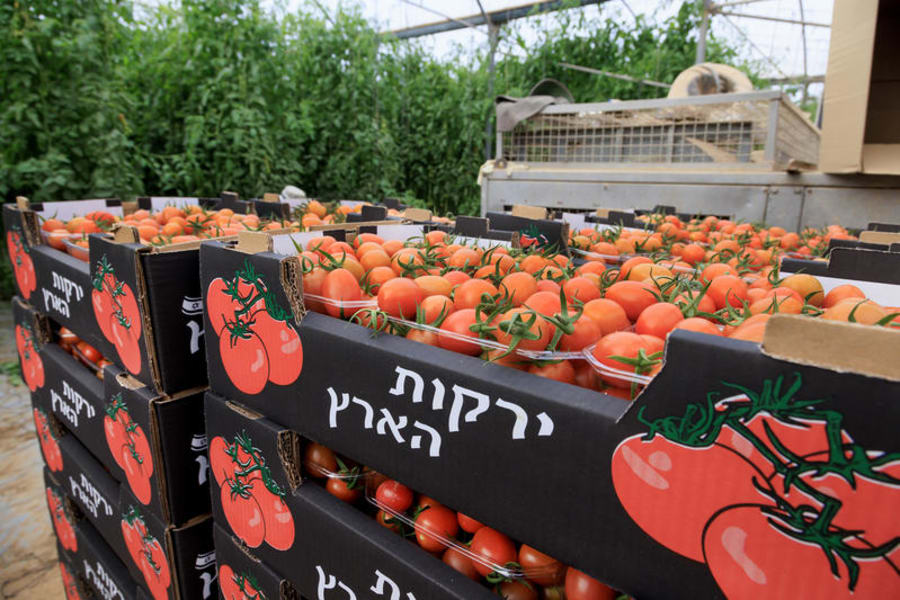Israeli researchers develop tastier tomatoes utilizing new innovative method

Israeli researchers at Tel Aviv University have developed a new innovative method that could result in tastier and climate-resilient tomatoes. Professor Eilon Shani and Ph.D. student Amichai Berman led the study, which was a collaborative effort with other researchers in Israel and at the Chinese Academy of Science in Beijing. The Israeli agri-tech business NetaGenomiX also participated in the study and the findings were published in Nature Communications.
The researchers at Tel Aviv University’s School of Plant Sciences and Food Security explained the new cutting-edge method.
“We’ve shown that our technology allows us to select and modify specific traits – an essential capability for advancing agriculture and achieving food security,” the researchers said in an interview with the Israeli news outlet Ynet News.
While the technique is currently focusing on tomatoes, the researchers argue that it could eventually be expanded and thereby contribute to achieving global food security.
Berman addressed the challenge of “genetic redundancy,” which means that editing or disabling a single gene has limited impact on the trait due to the fact that multiple genes share similar amino acid sequences.
“To overcome genetic redundancy, we aimed to simultaneously edit entire families of similar genes,” Berman explained. “We developed a dedicated algorithm and fed it a list of thousands of genes we wanted to target. The algorithm identified a CRISPR unit for each gene – or gene group – that would create the desired change, effectively building a CRISPR library."
The Israeli researchers emphasized that genetic editing is a technically challenging process.
“In this study, using our innovative method, we successfully introduced desirable genetic changes in tomato gene families and pinpointed which specific edits produced the desired results,” Prof. Shani explained.
Looking ahead, Berman articulated optimism that the research results would eventually improve multiple crop varieties.
“We believe our research paves the way for breeding improved crop varieties across a wide range of species and advances the broader field of plant science,” Berman claimed. “In future studies, we’re working to develop additional desirable traits in both tomatoes and rice."
With a tiny territory the size of New Jersey and over half of the country covered by dry desert, the Jewish state has since its inception been forced to embrace innovative and modern agriculture in order to feed its expanding population.
Already in its early years, Israel addressed its water shortage by developing water preserving techniques such as drip irrigation and eventually, advanced desalination plants. This development eventually solved Israel’s water scarcity and turned the country into a global water technology and agriculture pioneer.
Israel has also shared its advanced agriculture technology know how not only with developing countries, but also with dry regions in the West such as Australia and California.
In early 2021, the Israeli water company Mekorot was negotiating a potential water agreement with Bahrain, a water-stressed Arab Gulf state, which normalized its relations with Israel through the American-brokered Abraham Accords in 2020.
Additionally, in September 2024, Israeli researchers addressed the global cocoa shortage by developing resilient “superhero” seedlings.

The All Israel News Staff is a team of journalists in Israel.
You might also like to read this:















